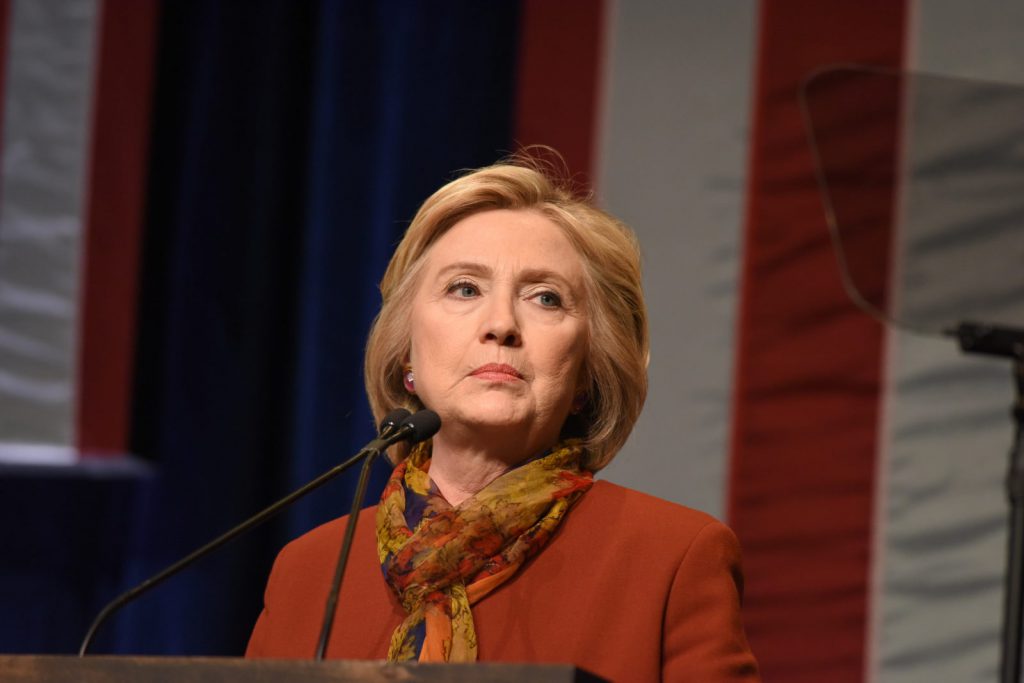
Published February 19, 2019
Remember 2016? Yes, I also wish I didn’t. But today, many journalists are asking what the media did wrong that year, so that they don’t repeat the same mistakes in 2020. And boy, are they already getting it wrong.
An emerging consensus among younger journalistic types on Twitter is that one of the media’s biggest mistakes during the 2016 campaign was excessive coverage of Hillary Clinton’s email scandals. Or to be more specific, the actual claim is not that the scandal was given too much coverage, but that it wasn’t even a scandal to begin with.
You can see this strain of argument creep into the public square whenever the alleged Trumpian atrocity du jour is quote-tweeted with the sarcastic note, “But her emails!”
Matt Yglesias is representative of this school. Back in November, he wrote a piece with the self-explanatory title, “The real Clinton email scandal is that a bullshit story has dominated the campaign.”
There’s certainly an argument for wondering if coverage of this or that during that crazy year wasn’t a bit too intense. There is, however, no possible rational argument that the email scandal was not a real, legitimate scandal, deserving of widespread coverage and opprobrium.
Let’s start with the facts that nobody disputes: upon reaching the State Department, Hillary Clinton’s staff, at her request, set up a private email server to handle most of her communications. This was in contravention to rules about public records. Furthermore, the server used old, off-the-shelf software that almost certainly left it vulnerable to hacking by ill-intentioned actors.
What’s scandalous about that? Well, first, it was a massive lapse in information security at the highest level of the U.S. government. Some have responded that the FBI did not find any information that the server had been hacked. This does not prove that it hasn’t been hacked, as a hacker might have been able to cover up her tracks. But this isn’t even the point: if someone working for a three-letter agency leaves a folder of classified documents on the subway, even if nobody stole it, it is the fact itself that is terrifying misconduct.
The security breach alone is a real and indisputably legitimate scandal. But there is another crucial side to , too. Clinton’s decision to set up the email server is not akin to some unintentional breach — say, some bureaucrat forgetting a folder full of classified material on the subway. For her intention in setting up the server was to skirt (if we’re generous) public records laws and thereby avoid public scrutiny for her actions as Secretary of State.
So we have all the ingredients of a scandal. There’s the misdeed itself; then there’s the fact that it affects national security; then there’s the incompetence or carelessness it shows (presumably Clinton never intended for the server to be insecure, it’s just that her staff didn’t bother to, or know how, to set it up right); and most of all, there’s the use of illegal subterfuge to conceal things for one’s private political interest at the expense of government transparency. Don’t forget that, set up as they were, Clinton’s emails managed to evade both FOIA requests and congressional records requests. All this on the part of a cabinet official and presidential candidate. That makes it a true scandal worthy of coverage.
Some might argue that it’s not a major scandal; it’s not the kind of scandal that should dominate headlines in the home stretch of a presidential campaign.
Here, we get into much more subjective terrain. Why is it that some scandals are bigger than others? And why is it that different people can honestly have different views about this, even when they agree on the facts of the case?
What makes a scandal really a scandal is less the fact itself than its implications. A scandal becomes really scandalous when it seems to confirm your pre-existing views.
Take two incidents relating to a different topic. In 2015, a man named Robert Lewis Dear killed three people and injured nine more at a Planned Parenthood clinic, later mumbling to police about “baby parts.” In 2011, doctor Kermit Gosnell was arrested on eight counts of murder, after having, for many years, killed many babies born alive in botched abortions, and even killed some of their mothers.
The press treated the first as a scandal because it confirmed most journalists’ pre-existing view that the pro-life movement, which they see as intolerant and hostile to women, must lie at the violent fringe. Nevermind that Dear is clinically insane — he was later judged incompetent to face trial — and had no connection to the pro-life movement, or really any sort of noteworthy beliefs at all.
As for Gosnell, any significance his story had for the national abortion issue was downplayed, to the fury of pro-life activists. Again, it all depends about your background assumptions. Pro-lifers believe that abortion is inherently destructive and exploitative; to a pro-lifer, Gosnell’s monstrous crimes encapsulate what the abortion industry is. Meanwhile, to the overwhelmingly pro-choice reporter class, who see abortion providers as basically sympathetic actors providing an important service, they can be horrified by Gosnell but also view his story as a freak incident without any broader implications.
And so, back to the email scandal. If you believe that Hillary Clinton is basically just a normal politician, not perfect but basically honest, then the email scandal won’t seem like a scandal. But to most Americans — and not just conservatives, as the exit polls make clear — it seemed to confirm a pre-existing view of Hillary Clinton as a profoundly cynical, deceitful and conniving politician who will twist every rule and bend every truth to get her way.
“No, those aren’t bribes, they’re donations to my family’s foundation to drill wells in Africa! Yes, I oppose TPP as of Tuesday, even though on Monday I was celebrating my role in negotiating it as a key achievement qualifying me for the presidency. Yes, I seem to be surrounded by a small coterie of people who instantly become millionaires as soon as they enter the private sector, but what’s wrong with that? Why, yes, over my many decades in public life I have contradicted myself on every issue of public policy you can imagine. So what if everything I say and do seems obsessively poll-tested, focus-grouped, consultant-managed? What’s wrong with that?”
Is this picture of Mrs. Clinton unfair? Maybe, to some extent. But it’s pretty consistent with the public record. And it is a view held not just by fetid swamp-dwellers, but by millions of politically moderate Americans, who as a result were — legitimately and completely understandably — outraged by the revelations about Hillary Clinton’s emails. They wanted and therefore they got the aggressive and comprehensive coverage that the scandal deserved, because media are even more ruled by clicks and eyeballs than by progressive bias.
The story of “her damned emails” was a true scandal. It’s more a question of subjective judgement whether it deserved to be as big a scandal as it was. But that so many of our elite commentators cannot even fathom why it could legitimately be so points to their inability to understand the minds of people unlike them. This not bode well for increasing the quality of future political coverage.
Pascal-Emmanuel Gobry is a writer and fellow at the Ethics and Public Policy Center.








